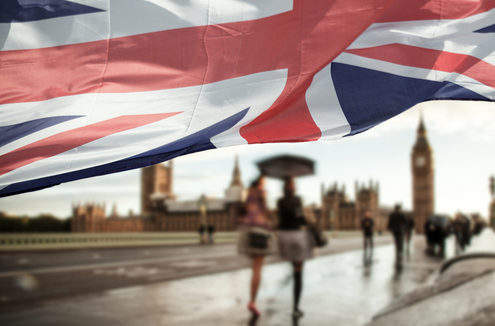
The looming decision on a Brexit deal or no deal has caused uncertainties in London’s financial district, creating questions over the city’s ability to remain a leading financial centre in Europe and the world.
The city fell from the top spot on the Z/Yen Global Financial Centres Index, which considers World Bank data and responses to surveys in its rankings. It shows the effect Brexit is having on the UK capital, which lost out on the top spot to New York.

Access deeper industry intelligence
Experience unmatched clarity with a single platform that combines unique data, AI, and human expertise.
Despite the uncertainty, some are still hopeful about London’s resilience.
Lianna Brinded, Head of Finance, Yahoo Finance told Verdict:
“London has thrived under membership with the EU. However, leaving doesn’t spell the end of the city.”
“London will be hurt but it won’t spell the end. Business won’t vanish overnight. Even though there will likely be a prolonged period of pain with whatever deal there is, a no-deal would be the worst. However, the City always has a plan for the worst,” she said.
 GlobalData Strategic Intelligence
GlobalData Strategic IntelligenceUS Tariffs are shifting - will you react or anticipate?
Don’t let policy changes catch you off guard. Stay proactive with real-time data and expert analysis.
By GlobalData
Two options for Brexit
There are currently two options for the EU and Britain to choose between: an agreed Brexit that both parties approve, or a no-deal Brexit, which would result from a failure to agree a deal by the March deadline.
Think tanks, research groups, and investment banks agree that a no-deal Brexit is the worst scenario. Leaving the EU without agreeing a stance on immigration and trade will have a big impact on London.
London after Brexit
Right now the uncertainty around Brexit has led many banks and companies to consider moving out of the capital and many major firms and banks have already started setting up subsidies in Dublin, Frankfurt, and Amsterdam.
“While there has been a number of major firms allocating resources, jobs, and offices overseas in order to be fully prepared in the event of a hard Brexit, it doesn’t mean the entire Square Mile is going to vanish overnight,” says Brinded.
“If anything it will just mean London will be in the doldrums for a while and may not reach the heights of its financial centre status for a long time, if ever, but it certainly won’t be over.”
Why does Brexit matter to London?
London’s financial companies want to be able to maintain access to Europe’s single market and keep the existing cross-border trading flow regardless of the direction that Britain takes.
Euro clearing, the process by which trades between banks and other financial institutions are settled, depends on being part of the EU. Financial passporting, which allows companies in member countries to sell their services across the EU with a local licence, is also threatened.
Immigration policy will effect jobs and the quality of talent available in London. It was a key topic for people voting for Brexit and the UK government has been keen to get rid of the freedom of movement that was part of being an EU member.
“This, of course, is especially worrying for London which has a great number of migrant workers in the services industry and talent that are deciding to leave,” says Brinded.
Companies still moving to Britain despite uncertainty
Fashion house Chanel just announced London as its location of choice for its new global office, in spite of the concerns many businesses have about Brexit’s effects on investment and jobs in the city.
Chanel told Radio 4 that it “wanted to simplify the structure of the business and London is the most appropriate place to do that for an international company. London is the most central location for our markets, uses the English language and has strong corporate governance standards with its regulatory and legal requirements.”
The company chose London over New York, which topped the Global Index, and over its creative centre Paris. Its decision is a mark of confidence in the UK’s long term prospects.
London’s world-class credentials
The Index considers factors like infrastructure and access to high quality staff. While some factors are now on uncertain grounds in London, others remain at the level of a global leader. Excellent higher education standards is one of the city’s credentials that helped to keep it in second place, ahead of Hong Kong, Singapore and all the other European cities.
David Lutton, Executive Director, Economy and Tax at London First, a business campaigning group, told Verdict:
“Our capital remains a leading global city, and home to some of the finest talent in the world.
“As well as securing a business-friendly Brexit, we must invest in the homes and transport people need for London to keep its top spot on the global financial stage.”
The current climate of uncertainty will pass. Once a decision is made about the nature of Brexit, institutions will know the set of problems they face and can then begin to tangibly react. One thing is certain, London will always be a leader.







